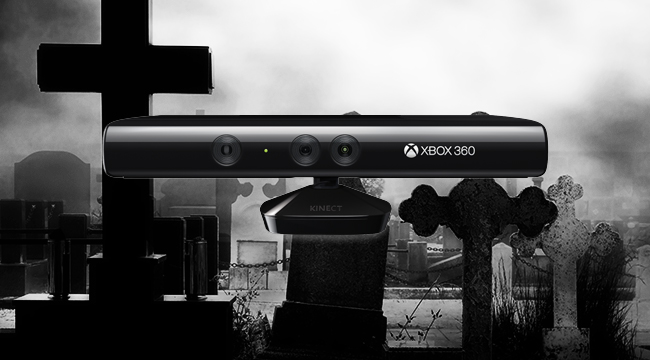
For a brief moment, the Kinect was Microsoft’s big hot thing. The accessory arrived with the Xbox 360 and, as an optional add-on, people loved it. Then Microsoft decided everybody should have a Kinect, whether they wanted one or not, and that Kinect should always be on, because people love nothing more than to pay $500 to be surveilled by a giant multinational corporation in their own home. Microsoft removed the Kinect, in part because it was being lapped by the PS4, and sure enough, sales were better without Kinect. Now, Microsoft has officially killed it off, but one can argue the Kinect simply moved on.
The Kinect’s fundamental flaw, it turns out, was it was aimed at the wrong audience. Not everybody has room to mime slashing orcs in the face and hucking spears at barbarous hordes. Its voice recognition features were neat, for a few minutes, but who wants to yell at a TV to change the channel? Especially when that voice recognition can be fooled by a TV ad? To gamers, it was a novelty.
What made the Kinect fascinating is that it was quickly put to much better use elsewhere. Researchers quickly leaped on it to make gaming more accessible, allow stroke survivors to interact with the world, scan crime scenes, guard the Korean border, and a host of other uses.
And, ironically, as the Kinect passes on, a whole bunch of other devices has filled in the gap. When the Kinect came out, the idea of a little plastic voice assistant was little more than science fiction. Now you can choose between Amazon’s hockey puck and Google’s little puff ball to tell you the weather and play back your music at Wal-Mart. The Kinect’s depth-sensing cameras paved the way for “mixed reality” technology like Microsoft’s HoloLens, or Apple’s current AR obsession. And the company that originally made the Kinect crammed it into a much smaller space on the iPhone X.
It’s easy to praise somebody as a pioneer, forgetting that in most cases, pioneers don’t last very long. And so it is with the Kinect. Arguments about what Microsoft could have done will likely rage on message boards and articles for years. But if nothing else, Microsoft can point to the groundwork it laid that others built on. Just let’s not talk about Kinect Star Wars, guys.
